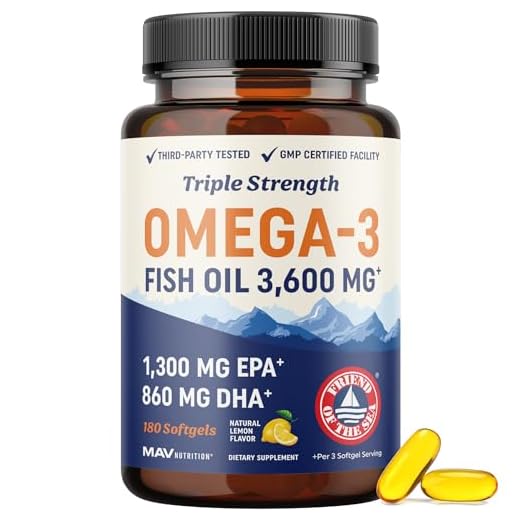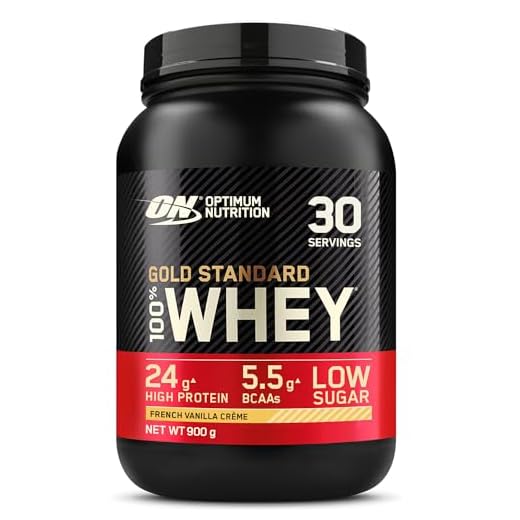



In the quest for achieving our desired body composition, it is essential to understand the role of a proper nutrition plan. While many components contribute to a successful weight loss journey, one key factor stands out: protein intake. Consuming an adequate amount of this macronutrient can significantly impact our ability to shed excess body fat and sculpt lean muscle.
Protein, often deemed the “building block” of our bodies, plays a crucial role in various physiological functions. From repairing and building tissues to acting as enzymes and hormones, its importance cannot be overstated. Strategically incorporating protein into our diet can not only support muscle growth but also rev up metabolism and enhance satiety, making it an invaluable tool for those seeking to shed unwanted fat.
While there is much debate surrounding the exact protein requirements for effective fat loss, it is generally accepted that an optimal protein intake is essential for facilitating lean tissue preservation and maximizing fat burning. However, finding the right balance can be puzzling, as it varies depending on several individual factors such as age, weight, and activity levels. Nevertheless, with a deeper understanding of protein’s impact on our bodies, we gain the power to tailor our nutritional approach to achieve our desired physique.
Understanding the Role of Protein in Fat Loss
When it comes to achieving fat loss goals, it is essential to have a comprehensive understanding of the role that protein plays in this process. Protein can be considered as a fundamental component that contributes to successful fat loss efforts, serving multiple crucial functions within the body.
One of the primary roles of protein in fat loss revolves around its impact on metabolism. Protein has a thermic effect, meaning that the body requires more energy to digest and metabolize it compared to other macronutrients. This increased energy expenditure can help elevate the overall metabolic rate, enabling the body to burn more calories throughout the day.
Furthermore, protein also promotes feelings of fullness and satiety, which can be beneficial for managing appetite and controlling calorie intake. By including adequate protein in the diet, individuals may experience reduced cravings and a greater ability to adhere to a calorie-deficient eating plan, ultimately supporting fat loss efforts.
In addition to its metabolic and appetite-regulating effects, protein plays a significant role in supporting muscle mass preservation during periods of fat loss. When the body is in a calorie deficit, there is a risk of losing not only fat but also muscle tissue. By consuming adequate protein, individuals can provide their muscles with the necessary building blocks to maintain their size and strength, preventing excessive muscle loss.
It is worth noting that the specific protein requirements for fat loss may vary depending on individual factors such as age, sex, activity level, and overall goal. However, a general recommendation is to aim for a moderate to high-protein diet, with protein making up a significant portion of daily calorie intake.
In conclusion, understanding the role of protein in fat loss is crucial for designing effective dietary strategies. Protein not only supports a faster metabolism and increased calorie burning but also aids in appetite control and muscle preservation. By including sufficient protein in the diet, individuals can optimize their fat loss journey and achieve their desired body composition goals.
Determining Your Daily Protein Intake
Understanding the optimal amount of protein to consume each day is crucial when aiming to achieve your weight loss goals and improve your body composition. It is essential to find the right balance between protein intake and fat loss in order to maximize your results.
Why Protein Intake Matters
Adequate protein intake plays a vital role in several key functions within the body. Protein is essential for repairing and building tissues, supporting a healthy immune system, and regulating hormone production. Furthermore, it can help increase your metabolism and promote feelings of fullness, making it an invaluable asset in your weight loss journey.
Determining Your Individual Needs
The amount of protein your body requires may vary depending on factors such as your age, sex, weight, and activity level. To determine your individual protein needs, it is recommended to consult with a qualified healthcare professional or a registered dietitian. They will assess your specific circumstances and provide personalized guidance tailored to your goals.
Additionally, you can estimate your protein needs by using a calculation based on your current body weight. Multiply your weight in pounds by a factor of 0.7-1, depending on your level of physical activity and goal. This calculation will give you a rough estimate of the grams of protein you should aim to consume daily.
Remember, it is important to spread your protein intake evenly throughout the day, as our bodies can only utilize a certain amount of protein at once. Consider incorporating high-quality protein sources such as lean meats, fish, eggs, dairy products, legumes, and plant-based options into each meal and snack.
As you embark on your weight loss journey, keep in mind that finding the right balance of protein intake is just one piece of the puzzle. Pairing it with a well-rounded diet that includes plenty of fruits, vegetables, whole grains, and healthy fats, along with a regular exercise routine, will help you achieve optimal results.
By determining your daily protein intake and tailoring it to your specific needs, you can optimize your fat loss efforts and enhance your overall body composition. Remember to track your progress and make adjustments as needed, always prioritizing your health and well-being.
Top Protein Sources for Shedding Excess Weight
In the pursuit of shedding excess weight, it is imperative to focus on consuming protein-rich foods that aid in fat loss. Incorporating the right sources of protein into your diet can help boost metabolism, promote satiety, and preserve lean muscle mass. Here are some of the best protein sources to consider:
1. Lean Poultry
Lean poultry, such as skinless chicken or turkey breast, is an excellent source of high-quality protein for fat loss. These lean meats are low in fat and calories, making them a nutritious choice to support your weight loss goals. Add grilled chicken breast to salads or enjoy a roasted turkey breast for a lean protein-packed meal.
2. Fatty Fish
Fatty fish, such as salmon, tuna, or mackerel, not only provide a good amount of protein but are also rich in omega-3 fatty acids. These healthy fats have been shown to aid in weight loss and reduce inflammation. Enjoy grilled or baked fish as a delicious and nutritious option to increase protein intake while promoting fat loss.
3. Greek Yogurt
Greek yogurt is a creamy and versatile protein source that can be enjoyed as a snack or incorporated into various dishes. It contains more protein compared to regular yogurt and is lower in carbs. Opt for plain Greek yogurt and enhance its flavors by adding fruits, nuts, or a drizzle of honey.
4. Eggs
Eggs are a budget-friendly protein source that can be prepared in various tasty ways. They are not only rich in protein but also contain essential vitamins and minerals. Include eggs in your diet by preparing omelets, hard-boiled eggs for a quick snack, or using them as a protein boost in salads.
5. Legumes
Legumes, including beans, lentils, and chickpeas, offer a combination of protein, fiber, and complex carbohydrates. They are a great option for individuals following vegetarian or vegan diets and allow for the diversification of protein sources. Add legumes to soups, stews, or salads for a filling and nutritious meal.
By incorporating these top protein sources into your diet, you can support your fat loss journey while ensuring you meet your nutritional needs. Remember to consult a healthcare professional or registered dietitian to determine the optimal protein intake for your specific goals and dietary requirements.
Incorporating Protein into a Balanced Diet for Fat Loss
Optimizing your nutritional intake is essential when it comes to achieving fat loss goals. One vital component of a healthy and balanced diet is a sufficient amount of protein. Incorporating protein into your daily meals can not only support fat loss but also aid in muscle repair and maintenance. In this section, we will explore the importance of including protein in your diet and provide practical tips for incorporating it into a well-rounded eating plan.
1. Prioritize protein-rich foods: Instead of focusing solely on calorie restriction for fat loss, prioritize the inclusion of protein-rich foods in your meals. By doing so, you can reap the benefits of protein’s satiating effects and maintain muscle mass while promoting fat loss.
2. Calculate your protein needs: Determining the appropriate amount of protein to consume can be daunting. It is generally recommended to consume about 0.8-1 gram of protein per kilogram of body weight per day. However, individual needs may vary depending on factors such as activity level, age, and overall health. Consulting with a healthcare professional or registered dietitian can provide personalized guidance.
3. Diversify protein sources: Incorporating a variety of protein sources can ensure a well-rounded nutrient intake. Include lean meats, fish, poultry, dairy products, legumes, nuts, and seeds in your diet. Experimenting with plant-based protein options, such as tofu, tempeh, and quinoa, can also add variety to your meals.
4. Plan protein-rich meals and snacks: To make protein a significant part of your diet, it is essential to plan protein-rich meals and snacks. Include a source of protein in each meal, such as eggs or Greek yogurt for breakfast, grilled chicken or fish for lunch, and tofu or beans for dinner. Additionally, incorporating protein-rich snacks, like nuts or protein bars, can help curb hunger and maintain satiety throughout the day.
5. Be mindful of portion sizes: While protein is beneficial for fat loss, portion control is still essential. Be mindful of portion sizes to avoid overconsumption of calories. Measuring your protein portions using a food scale or using visual cues, such as the size of your palm, can help you maintain an appropriate protein intake without excessive calorie consumption.
6. Timing is key: Distributing your protein intake evenly throughout the day can enhance its effectiveness for fat loss and muscle maintenance. Aim to include protein-rich foods at each meal and snack to provide a steady supply of amino acids to your muscles.
Remember, incorporating protein into your diet is just one aspect of a balanced fat loss plan. It’s equally important to engage in regular physical activity, prioritize whole foods, and create a calorie deficit if weight loss is your goal. Consulting with a healthcare professional or registered dietitian can provide personalized advice based on your specific needs and goals.
FAQ,
How does protein help in losing body fat?
Protein plays a crucial role in weight loss by increasing feelings of fullness, boosting metabolism, and preserving lean muscle mass, which is essential for burning calories and losing fat.
What is the recommended protein intake for fat loss?
The recommended protein intake for fat loss varies depending on factors such as body weight, activity level, and overall goals. However, a general guideline is to consume 0.8-1 gram of protein per pound of body weight.
Can consuming too much protein hinder fat loss?
Consuming excessive amounts of protein can potentially hinder fat loss if it leads to an overall calorie surplus. While protein is important for weight loss, it’s still crucial to maintain a calorie deficit for fat loss to occur.
Should I consume protein before or after workouts?
Both pre and post-workout protein intake are important. Consuming protein before a workout provides the necessary amino acids to fuel your muscles during exercise, while post-workout protein helps in repairing and rebuilding muscles for recovery.
Are there any risks associated with high protein intake during fat loss?
While high protein intake is generally safe for most individuals, it’s important to stay hydrated and balance protein intake with other essential nutrients. Additionally, individuals with certain health conditions, such as kidney disease, may need to moderate their protein intake.








